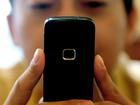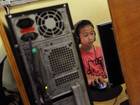Rovio, the Finnish makers of the world's most-downloaded mobile app "Angry Birds", will seek a stock market listing by the end of 2013, chief financial officer Mikko Setala said in an interview published Thursday.
"We have prepared a stock market entry for 2013. But the shareholders have not decided when or whether it would even happen," Setala told Swedish economic newspaper Dagens Industrii.
 Full Story
Full Story
Mobile phone and Internet services have been cut in Aleppo, Syria's second city, where a crucial battle is taking place between rebels and the army, the Syrian Observatory for Human Rights said on Thursday.
"Mobile telecommunications services and Internet have been cut off in the city of Aleppo since last night," it said.
 Full Story
Full Story
Twitter on Wednesday launched a new political index aimed at gauging the 2012 U.S. presidential race by analyzing daily tweets.
In the first release, the index gave U.S. President Barack Obama a score of 34 -- down four points from the previous day -- to 25 for Republican rival Mitt Romney, who was up two points.
 Full Story
Full Story
A U.S. regulator Wednesday proposed tougher standards to protect privacy and collection of data of children using the Internet.
The Federal Trade Commission unveiled a proposal to expand the scope of privacy rule not just to website operators, but to third-party applications and "plug-ins" which may be on social networks or on mobile phones.
 Full Story
Full Story
Google and Apple have both removed an application from their app stores used by Hizbullah to stream its al-Manar satellite network, media reports said.
The app which was on display on July 25 was removed from the iTune stores four days later and Google followed two days after removing the app from Google Play.
 Full Story
Full Story
Google said Tuesday it was buying Wildfire, a startup specializing in advertising on social media such as Facebook and Twitter.
Terms were not disclosed, but the Dow Jones website AllThingsD said it was $250 million.
 Full Story
Full Story
Microsoft on Tuesday said it was revamping its new cloud-based email service, phasing out the name Hotmail in favor of Outlook as it adapts for mobile users and social media.
"Email is becoming less and less useful as inboxes become cluttered with newsletters and social updates, and people increasingly keep up their personal connections in social networks instead of their email address books," Microsoft's Chris Jones said in a blog post.
 Full Story
Full Story
Lawyers for Apple and Samsung debated the differences between copying and honest competition as opening arguments were held Tuesday in a huge patent trial involving the two tech giants.
Harold McElhinny, a lawyer for Apple in the blockbuster patent trial under way in San Jose, California, told the jury Samsung began copying the U.S. firm as soon as the iPhone was publicly unveiled in January 2007.
 Full Story
Full Story
Chinese communications giant Huawei Technologies on Wednesday responded to U.S. hackers' claims that its routers were easily cracked, saying its security strategies was rigorous.
The annual Def Con hackers' convention in Las Vegas on the weekend was shown how to slip into networks through some Huawei routers, which Recurity Labs chief Felix "FX" Lindner described as a "gift" to the hacker community.
 Full Story
Full Story
Revenues from China's online dating market are forecast to top two billion yuan ($315 million) in 2014 as work-stressed Chinese struggle to find partners, a new report said Tuesday.
Tens of millions of single Chinese people now use match-making websites to find partners or meet new friends, said the report from Analysis International, which forecasts the market will hit 2.02 billion yuan by 2014 -- double its value last year.
 Full Story
Full Story



